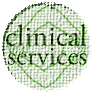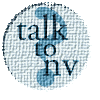THE JOURNEY FROM TUBE FEEDING TOWARD ORAL FEEDING
The workshop is designed help professionals and parents develop a comprehensive overview of the areas that encourage a child’s journey from tube feeding toward oral feeding. Underlying medical issues will be explored and integrated with therapy concepts that support the comfort and inner motivation that enables children to develop oral feeding skills. An emphasis will be placed on the development of individualized programs that lead toward positive mealtime relationships, comfort with food and the skills needed to eat efficiently and safely.
Although many therapeutic techniques will be discussed and illustrated, this workshop focuses on the overall approach to therapy rather than the specific techniques used.
COURSE DATES, LOCATIONS & SPONSORING ORGANIZATIONS
Please contact the sponsoring organization for a brochure and registration information for workshops in 2018.
This workshop is not scheduled for 2018.
INSTRUCTOR
Suzanne Evans Morris, Ph.D., is a speech-language pathologist in private practice near Charlottesville, Virginia. She is nationally and internationally known for her work in identifying and treating young children with feeding and pre-speech disorders. Dr. Morris maintains a practice which includes direct clinical work, continuing education workshops, development of clinical materials and clinical research. She is the director of New Visions, which sponsors innovative workshops for the teaching of feeding-related skills, and provides family-oriented clinical services. Dr. Morris has studied Neurodevelopmental Treatment approaches extensively in England, Switzerland, and the United States. She is the author of the Pre-Speech Assessment Scale, a rating scale for the measurement of pre-speech behaviors in children from birth through two years, and coauthor of Pre-Feeding Skills: A Comprehensive Resource for Mealtime Development (2nd edition), , the Mealtime Participation Guide, and the Homemade Blended Formula Handbook.
COURSE OBJECTIVES
Participants will
-
understand how beliefs and attitudes impact on the availability and type of services provided to children who receive their nutrition through a feeding tube.
-
understand the role played by mealtimes in the lives of children and their families.
-
understand how tube-feeding experiences influence a child’s journey toward oral feeding.
-
become familiar with feeding guidelines from normal development, which contribute to assessment and treatment.
-
discuss the influence of different types of feeding tubes and formulas
-
identify component skills for efficient oral feeding.
-
examine the role of gastrointestinal and sensory discomfort in the child’s feeding experience.
-
understand the anatomy and physiology of swallowing and the role of swallowing difficulties in moving toward oral feeding.
-
set treatment goals to help children develop the skills that will enable them to progress toward oral feeding.
-
develop strategies for increasing comfort and skills with food.
-
individualize specific therapy components for children with different abilities, needs, ages, and diagnoses.
-
identify a child's readiness for tube weaning and specific options for moving from tube feeding to oral feeding.
SCHEDULE
DAY 1
8:00
Registration
8:30
Issues surrounding tube feedings – interacting beliefs and choices
Mealtimes – developing the partnerships that support the desire to eat and the internal regulation of eating.
10:30
Morning break
10:45
Tube feeding experiences and their influence on oral feeding
-
Feeding tubes–advantages and disadvantages
-
Gastrointesintal discomfort
-
Sensory processing and discomfort
12:30
Lunch
1:30
Readiness for oral feeding – concepts and cues
Guidelines from typical infantdevelopment
-
Oral sensorimotor development (birth to 12 months)
-
Sucking and swallowing development (birth to 4 Months)
-
Anatomy and physiology of swallowing
3:00
Afternoon break
3:00
Foundations of efficient feeding
-
Components – physical, sensory, structure, experience
-
Categories of feeding problems
4:30
End of Session
DAY 2
8:30
Assessment - observing feeding patterns
-
Characteristics of children who have feeding tubes
-
Relevance of clinical and instrumental tests for swallowing and their relevance to therapy sessions
Assessment - organizing information
-
Specific component skills for efficient oral feeding
-
Supporting abilities and limiting behaviors
-
Addressing the unknowns
Setting treatment goals
10:30
Morning break
10:45
Treatment strategies
-
Attitudes that support the journey
-
Music and sound to reduce stress and support learning
-
Reducing gastrointestinal discomfort
-
Tube feeding schedules
-
Building dietary diversity
12:30-1:30
Lunch
1:30
-
Movement and positioning for optimal feeding and swallowing
-
Building a supportive sensory environment
-
Introducing food tastes, temperatures and textures
2:45
Afternoon break
3:00
-
Developing oral-motor skills for eating and drinking
-
Gradual transition to oral feeding
4:00
End of Session
DAY 3
8:30
Treatment – putting it all together
-
The child with motor-based feeding challeng
10:30
Morning break
10:30
Treatment – putting it all together
-
The child with sensory-based feeding challenges
12:30
Lunch
1:30
Tube weaning
-
Readiness for tube weaning
-
Options for moving from tube feeding to oral feeding
3:00
Afternoon break
4:00
Final questions and discussion
4:30
End of session







